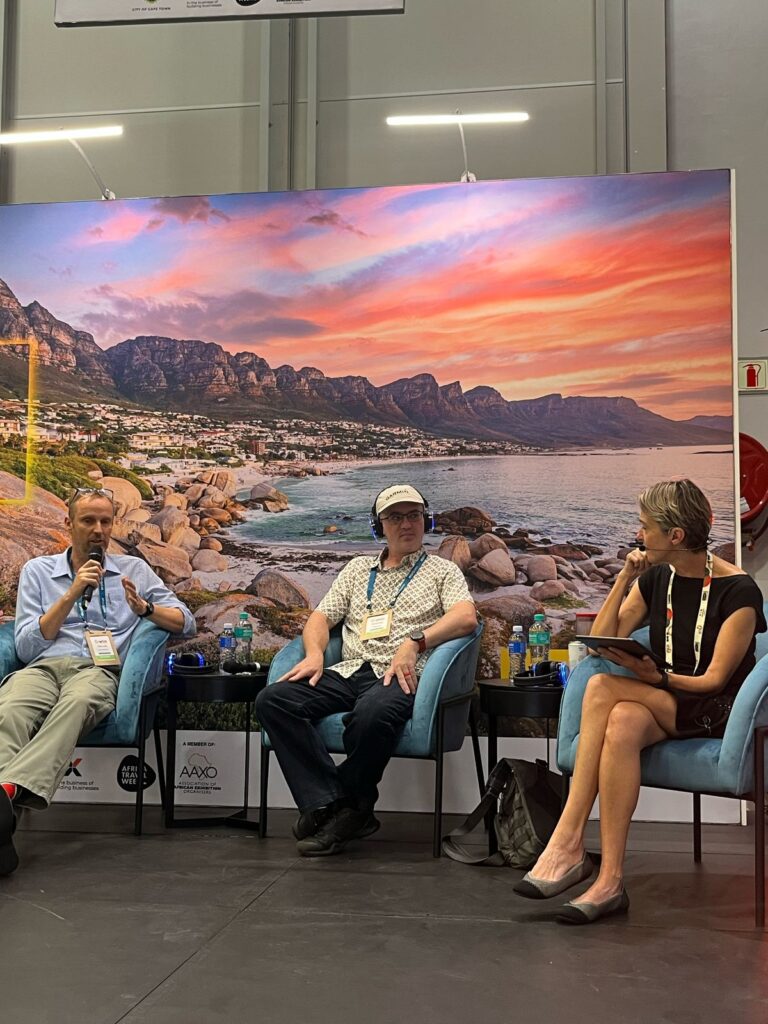A groundbreaking initiative to develop standardised questionnaires for neurodivergent travellers is set to transform how the travel sector serves this often overlooked market segment. In a revealing panel discussion at WTM Africa, CEO of Tourism that Cares Adrian Lange announced a new partnership with Autism SA to create comprehensive guidelines that will help hospitality providers better understand and accommodate the needs of neurodivergent guests.
“We’re on an intentional journey to create a standardisation of best practice in the industry so that every lodge has the same questionnaire. Every tour operator has the same questionnaire,” explained Lange, who has personal experience with neurodivergent family members. The new resource is currently in its infancy but would represent a significant step forward for inclusive tourism in Africa.
Neurodiversity encompasses a range of neurological differences including autism, ADHD, and other conditions that affect how people experience the world. The panellists emphasised that there is no one-size-fits-all approach, as each neurodivergent individual has their own unique sensory profile.
“Most people are either up or low on the various senses. I’m pretty much oversensitive across the board,” explained aircraft engineer Gary Bernstein, who identifies as autistic, highlighting how environments like noisy airports or cramped aircraft can be particularly challenging.
For neurodivergent travellers, the unpredictable nature of travel can be overwhelming. Airports present particular challenges with their noise, crowds, and complex navigation requirements. African destinations add another layer of complexity, but the panellists stressed that with proper preparation and support, these hurdles can be overcome.
Lange emphasised the importance of predictability.
Practical solutions for travel providers
Pre-arrival communication
The panel highlighted several practical steps travel businesses can implement immediately:
- Comprehensive walk-through videos: “A walk through from the lobby to your room to public areas is essential,” Lange explained. Unlike marketing videos with music and quick cuts, these should be informative and thorough.
- Personalised welcome videos: A 30-second video call from a staff member who will welcome the guest can create familiarity and reduce anxiety.
- Detailed visual information: Maps, layouts, and visual guides help neurodivergent travellers plan and prepare for their experience.
Airport and transfer considerations
Fast-tracking services were identified as essential for navigating stressful airport environments. Lange described how his company uses private fast-tracking services to help clients move smoothly through airports, with all paperwork prepared in advance.
Bernstein added practical advice for air travel: “The further forward you are [on an aircraft], the quieter it is. But also, the further away from the wing, the more unstable it is. So it depends whether you are more sensitive to motion-based disturbance or noise-based disturbance.”
Accommodation adaptations
Simple accommodations in hotels and lodges can make a significant difference:
- Adjustable lighting: It’s important that travellers can dim the lights in the room.
- Hyper-personalisation: Allow travellers to personalise their room with things like family photos and familiar home objects in the room as this will make the space feel more comfortable.
- Room location: Placing neurodivergent guests in quieter wings of hotels or resorts when available.
- Sensory considerations: Being mindful of bed linens, sounds, and other sensory elements that might affect comfort.
Itinerary design for neurodivergent travellers
The panellists advised against the typical packed itineraries with multiple stops and connections. Instead, they recommended:
- Minimising transitions and connection points
- Building in decompression time after travel segments
- Focusing on the peaceful, natural environments that Africa offers in abundance
- Providing consistent support throughout the journey
“Don’t transition like the typical itinerary for a client who wants to check boxes,” Lange advised, noting that what Africa offers can be particularly beneficial for neurodivergent travellers once they’ve moved past the stressful travel components.
Industry Initiatives on the Horizon
The website neurodiversetravellers.com is also being developed as a resource for both travellers and industry professionals. “We want to be the benchmark for that,” Lange explained, emphasising that while catering for neurodiverse travellers might not be immediately profitable for the tourism industry, it represents an important commitment to inclusion.
The Most Important Question: “How Can We Support You?”
Perhaps the most valuable takeaway from the discussion was Bernstein’s advice on the single most important question travel providers should ask: “How can we support you?”
“The biggest thing any business can do is ask the question, how can we support you? How can we accommodate you?” Bernstein emphasised. “For the most part, those accommodations don’t cost them money. It’s a gesture. We accept you. We see you.”
By implementing the practical solutions discussed by the panellists and approaching neurodivergent travellers with empathy and openness, African travel businesses can lead the way in creating truly inclusive experiences.
By taking these first steps toward neurodivergent inclusion, the travel trade can open its doors to a wider audience while creating more comfortable environments that benefit all travellers.

